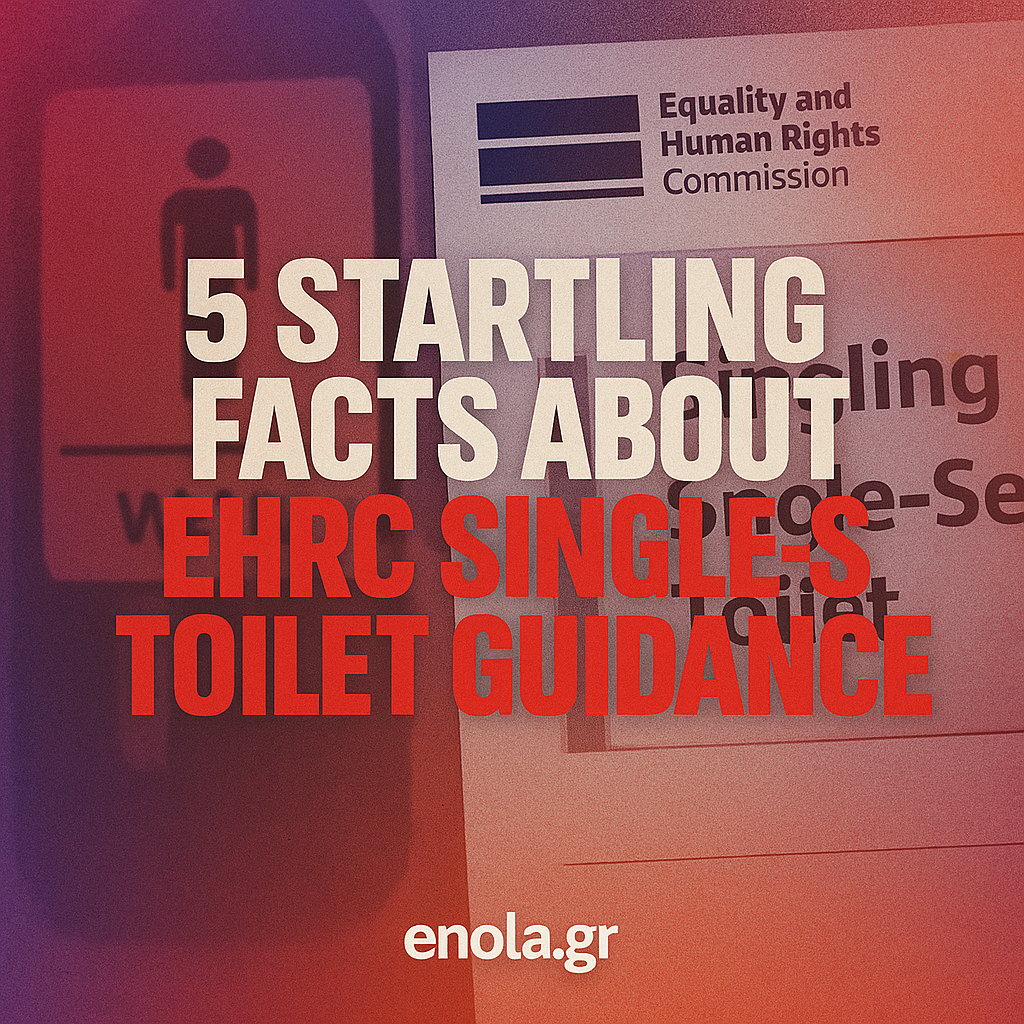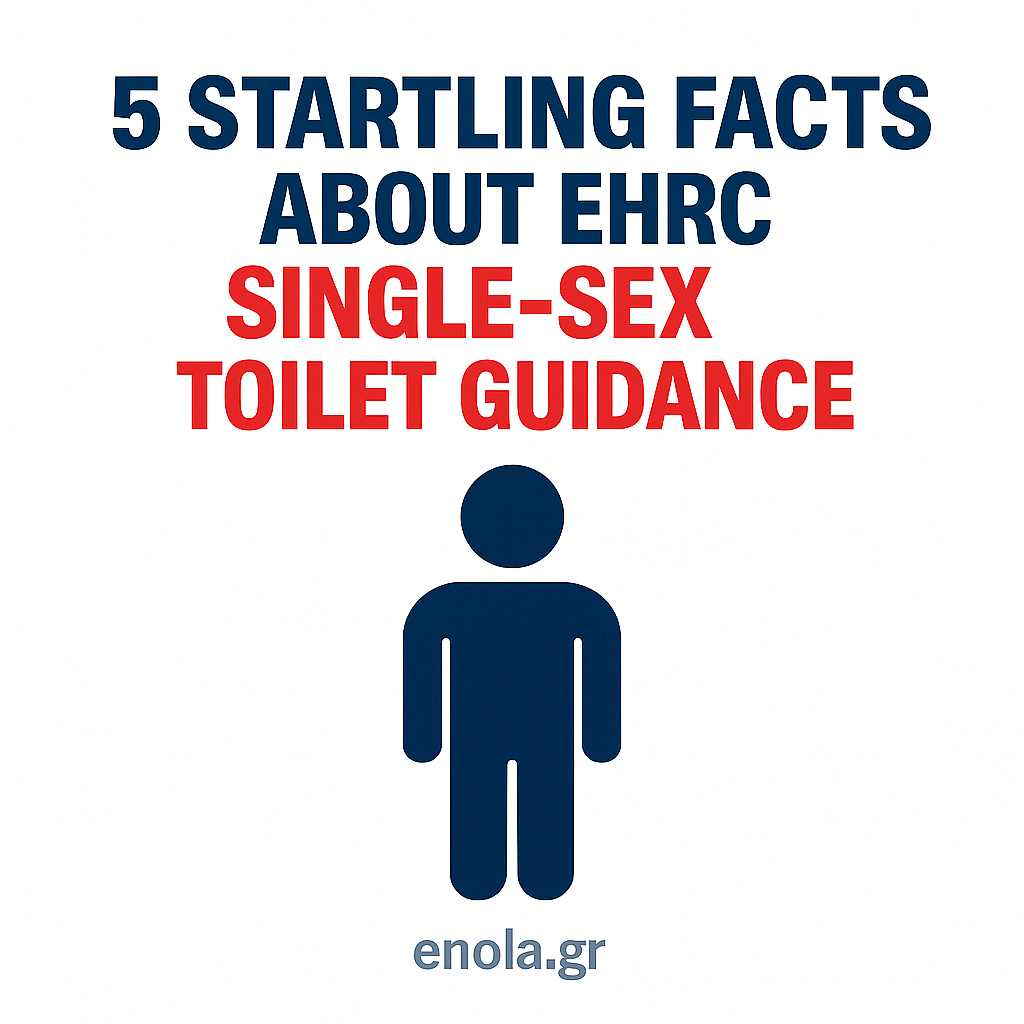The EHRC single-sex toilet guidance has ignited national debate after the UK’s Equality and Human Rights Commission announced that employers are not legally required to provide gender-segregated toilet facilities. This development affects thousands of workplaces and carries serious implications for LGBTQ+ rights.
Let’s break down what’s happening.
EHRC Single-Sex Toilet Guidance No Longer Labels Facilities as ‘Compulsory’
The initial EHRC single-sex toilet guidance used the word “compulsory” to describe single-sex facilities. This changed after legal pressure from the Good Law Project, which challenged the language. EHRC admitted the term was misleading, and the updated guidance now states employers comply if they provide private, lockable rooms — regardless of gender labels.
This has caused confusion among employers trying to balance legal compliance with inclusivity.
EHRC Single-Sex Toilet Guidance and the Focus on ‘Biological Sex’ Raises Concerns for Trans Individuals

Following a Supreme Court ruling in April, the EHRC stated that under the Equality Act 2010, references to sex and gender should be interpreted as biological sex. This element of the EHRC single-sex toilet guidance has alarmed LGBTQ+ organizations, who argue it could lead to the exclusion of trans people from facilities aligned with their gender identity.
Critics argue that this legal framework prioritizes biological categorization over lived identity and safety.
Legal Challenge in Progress: Good Law Project Takes Action Against EHRC Single-Sex Toilet Guidance
The Good Law Project has launched legal proceedings to dispute the new EHRC single-sex toilet guidance. According to their official statement, the revised guidance remains flawed and poses risks to trans and non-binary individuals.
In response, EHRC claimed the interim document was only “brief, high-level observations” and not binding.
Consultation Process Faces Accusations of Being Rushed and Unlawful
The EHRC single-sex toilet guidance was subject to a brief public consultation, initially limited to just two weeks. After criticism from human rights organizations, it was extended to six weeks—but many argue this was still inadequate. Concerns were raised about whether the process fairly considered feedback from marginalized communities.
EHRC Chair Kishwer Falkner responded during a Parliamentary committee session projecting a timeline of “seven or eight months” for finalized guidance.
Why Employers Must Understand the EHRC Single-Sex Toilet Guidance
The updated EHRC single-sex toilet guidance has far-reaching implications—not just legally, but ethically. It affects workplace policies, school restroom access, and public venues. Advocates urge employers to ensure inclusive and private facilities that do not marginalize vulnerable groups.
“This guidance impacts daily dignity for thousands of people,” said one LGBTQ+ rights advocate.
As this story evolves, it’s essential to stay updated and engage with trusted sources for accurate, inclusive advice.
For more developments like this, visit our Equality News Hub for ongoing updates.












